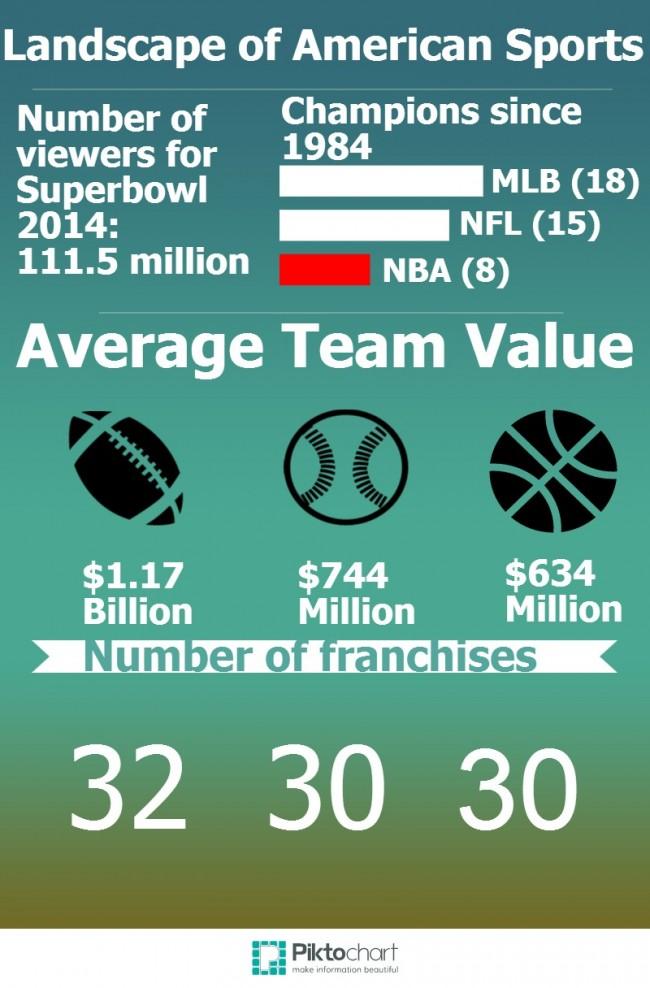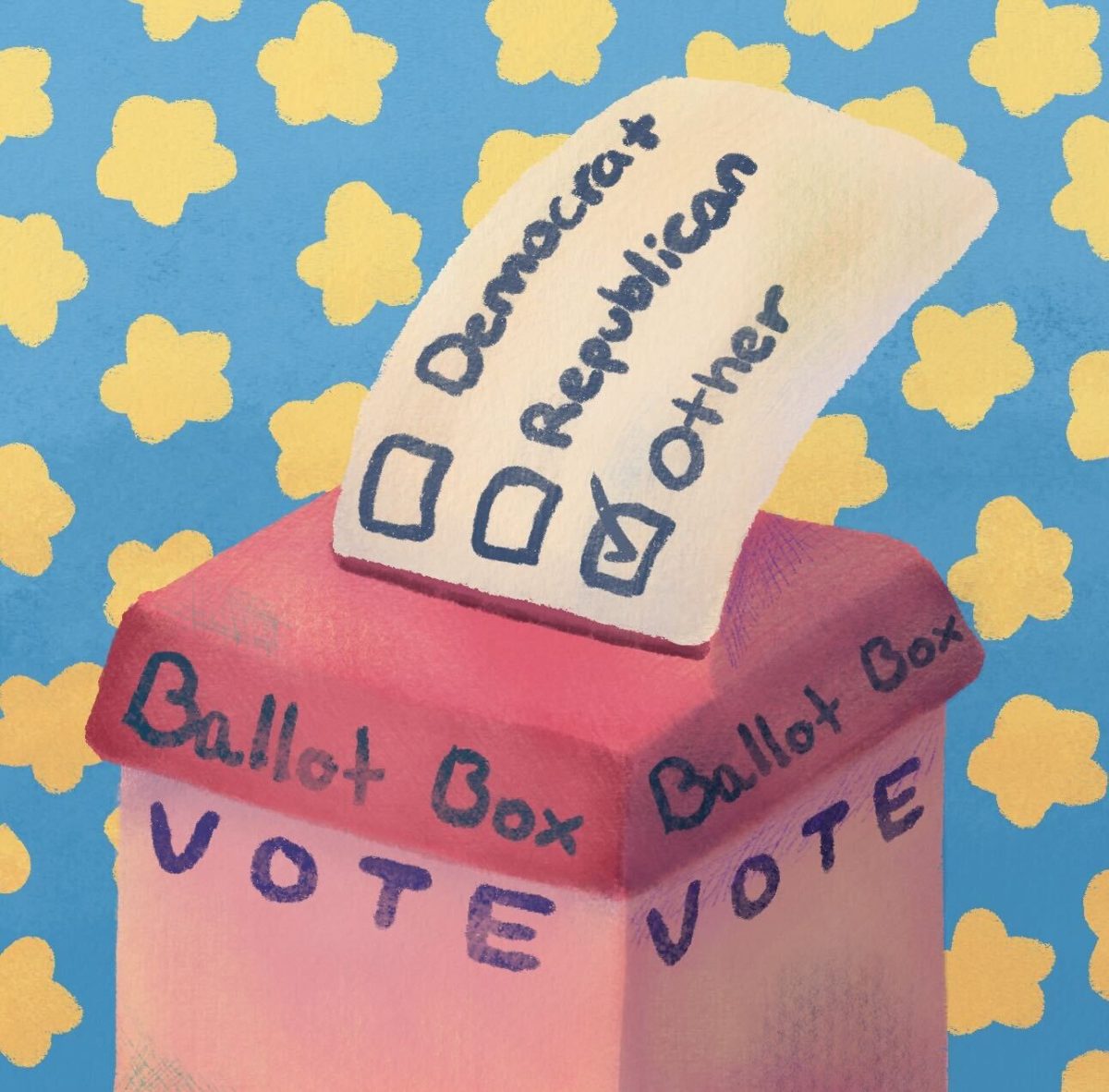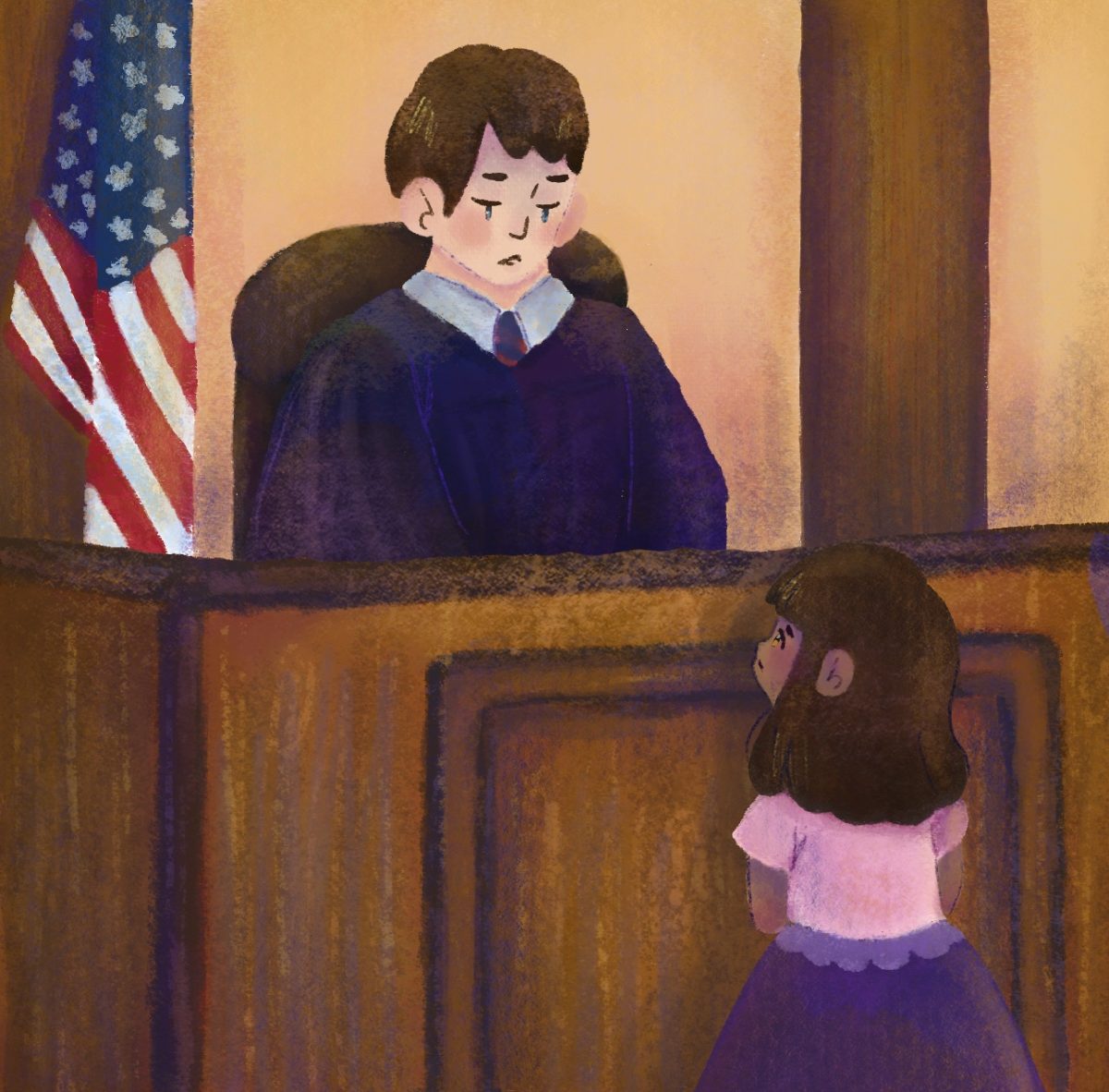
A whopping $1.17 billion on average is what NFL teams were worth as of last season, according to Forbes. Even a team in a godforsaken market like the Cleveland Browns sold for nearly $1 billion in 2012.
For the NFL’s biggest competitor in the sports market, the NBA, the average value for their teams stands at $634 million. Despite the NBA’s efforts at creating a successful global brand, the NFL is and will continue to play big brother to the NBA unless the NBA consciously fixes three things: duration of the season, contract details for rookies and better use of its Developmental League (D-League). Such changes would not only improve the league’s appeal to current and potential viewers, but also establish more parity in a league known only for its marquee franchises.
Staling Competition
Over the past 30 years, only eight NBA franchises have won the NBA Championship, as opposed to 18 for MLB and 15 for both NFL and NHL. Dominant NBA teams often win championships a few years in a row (look at the recent repeat championships by the Los Angeles Lakers and Miami Heat). Lower ranking NBA teams often don’t have a shot for the trophy.
It’s like watching a loaded game. It’s boring because you already know the winner. Part of what makes the NFL exciting is because any team has an equal shot at the trophy. A great example of this is the 2008 Super Bowl upset when the underdog New York Giants won the Super Bowl against the then-undefeated New England Patriots.
Length of NBA Season
The NBA regular season, which consists of 82 games from late October to mid-April, is just too long. Each team plays two to four games weekly and the consequence of a single loss doesn’t come close to that in the NFL, whose regular season consists of 16 games.
As is the case in baseball and hockey, each game’s importance loses its value in such a long season. A team that knows it will make the playoffs due to its talent won’t worry about losses in the first half of the season. Just look at the San Antonio Spurs and coach Gregg Popovich, who often sits his star players to keep them healthy for the playoffs.
A season ago, he sat star forward Tim Duncan and the box score read, “Tim Duncan – DNP [did not play] – Old.” The notion of “scheduled losses” would be essentially non-existent if the regular season was shortened.
The most recent NBA lockout, which shortened the 2011-2012 season to 66 games, proved a shorter season creates a better product for the fans, even if it saps profits from the league for two months.
Rather than start in late October, the 2011-2012 season began on Dec. 25 and the NBA saw an immediate increase in television ratings.
According to NBC Sports, the Boston Celtics-New York Knicks Christmas Day matchup was up 52 percent in ratings compared to the same slot the previous season.
Plus, October and November’s sports headlines are still dominated by baseball and football. Delaying the start of the NBA season would protect the league from competition and foster more demand from fans.
Rookie Contracts
The current structure of rookie contracts is one of the biggest components of the new collective bargaining agreement that needs to be amended. First-round draft picks are guaranteed contracts that generally last for three years. Each respective team then has multiple options to extend that contract, based on the rule that the team the player is already on has rights to give the player more money than other teams can offer for up to seven years.
As a result, teams that finish at the bottom of the league are essentially awarded with a future star at an affordable price for up to seven years. Shortening that length of contract to, let’s say four years, instantly lets teams know that purposely losing to draft the next big star is of no value long-term.
Since the topic of tanking – purposely losing to get a better draft pick – has become more of an issue in recent years, the idea of inserting a policy of relegation is a potentially dangerous but compelling premise.
Just as the English Premier League does for its soccer teams, the NBA should “relegate” the three worst teams to the NBA D-League. This will never happen because franchises are just too valuable for the NBA as a business. But the principle of having consequences for losing need to be inserted into the league’s guidelines.
Either restructure rookie contracts or threaten teams with relegation. Doing neither promotes the culture of losing that has become the norm for the bottom third of the league.
D-League
Rather than increase the age-minimum to 20, as NBA Commissioner Adam Silver immediately discussed when taking over the position, the NBA is better off allowing teams to draft high school, international and young college players to each of their respective D-League teams.
By following the farm system that has been a focal point of MLB since the league was established, the NBA would allow teams to allow long-term projects to actually develop. Rather than take a risk on a player who could turn out to be either the next LeBron James or Leon Smith, NBA teams can minimize risk by drafting project players to their D-League team.
There’s a reason you, as the reader, went “who?” when reading Leon Smith’s name. He was the number one reason David Stern increased the age minimum to 19 and banned high school players from entering the league. Smith faced psychological problems early in his career and struggled to see playing time. The NBA, as a business, has a product to protect and undeveloped players tarnish that product. Rather than use the D-League as a sideshow to the main event, the NBA will ultimately improve its quality of play by treating the D-League as a minor-league system. For that to happen, the stigma of being sent to the D-League needs to change from punishment to opportunity.
When it’s all said and done, the fact the NFL plays a majority of its games on the one day that Americans choose to relax and do nothing but watch television will be hard to compete with, regardless of any changes made to the NBA’s structure.
However, by making the aforementioned changes, the league would simultaneously improve the quality of its play and create a more balanced and competitive league. Of course, the NBA could just get rid of maximum contracts and implement a hard salary cap to create more parity.
Since those options seem to be consistently ignored by league officials, the second-best option is to take away some of the benefits of losing purposely. Combine that with an improved minor-league system and the NBA has more than enough assets to rival and even eclipse the influence of the NFL.





